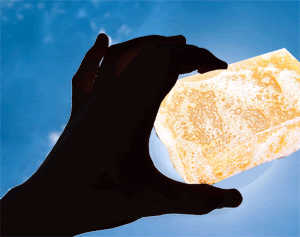Napping May Boost Memory, Understanding
 Ah - So, That's How It All Fits...
Ah - So, That's How It All Fits...GSN Studios - Mind The Map Game Show
Wow, how exciting is this? You've been a huge fan of Mind The Map since the early days, when they had those cheesy, plastic covered wall maps and they used different colored pushpins to mark the Hot Spots. Incredible! But, now, it's awash in the latest high tech gadgetry and you - You! - are a contestant.
If you don't pass out from the excitement, this should be fun.
OK - here you go. The "Avoid the Lightning" round. Careful - this gets tricky.
"All right, contestants. Here are the cities and, remember, it's early spring and the thunderstorms are popping. Here you go: Madras, Oregon. Cortez, Colorado. Dodson, Montana. Eureka, South Dakota. Minden, Louisiana. Kokomo, Indiana. Rutland, Vermont. Dublin, Georgia. Alabaster, Alabama."
Your mind races to memorize each city as it appears on the 30-foot plasma screen.
"OK, have them memorized? Good. Now for the hard part. Pick a starting point - any city you desire - and plot a route to the other cities. The contestant who suffers the fewest lightning strikes during their journey is the winner - so, check the long range weather forecast and get to it."
You grab a quick peek at the weather patterns, begin to get a spatial perspective of your cities, and mull over your options. Then, knowing it's first-come-first-served, you bang the buzzer and shout, "Alex, I'd like to take a Map-Nap Detour!"
Ah, good strategy...
Scientists report that sleep provides much more than just sweet dreams. Sleep also appears to serve as a bit of a respite for the brain - a chance to get away from the hustle and bustle of the workaday world, let its synapses down and take it all in.
Researchers have long known that sleep assists the brain in learning functional activities such as walking, talking and playing musical instruments. Now, they report that sleep also helps the brain "put it all together." It appears the brain utilizes the quiet time during sleep to take the multitude of disparate pieces of knowledge it acquires throughout the day and piece them together. It's somewhat akin to creating a neural fabric of our lives while we snooze.
This type of memory is what's known as Relational Memory. So, for example, in the never-to-see-the-studio-lights game show Mind The Map, it's a two-step process. First, contestants must learn the individual cities. It's all well and good to memorize them, but it's insufficient.
To play the game - especially to win - they must combine multiple pieces of information. Where are the current storms? In what direction are they moving, and how quickly? How far apart are the cities, and what is the estimated travel time? Will beginning in the east or the west allow them to avoid more storms?
It's a complex puzzle that requires a keen analytical mind - and, a good nights sleep. The complex apparently becomes quite simple when subjected to late night snores and copious drool. The researchers aren't yet sure of drools exact function, but further studies are planned.
The studio's alarm clangs and jolts you awake. It was only thirty minutes, but you feel fabulous. You step back to the podium, take a quick look at the map, and Bingo! It all falls in place.
"Alex, I'll summer in Paris and travel in the fall - after the thunderstorm season has passed.'
Lights flash, bells whistle and confetti falls.
Alex turns excitedly to the camera and announces, "We have a winner!"
















